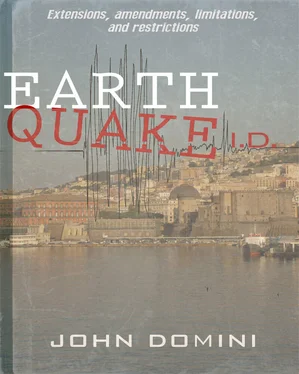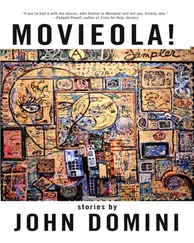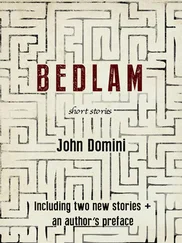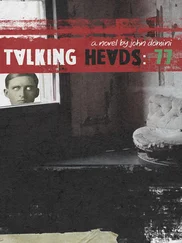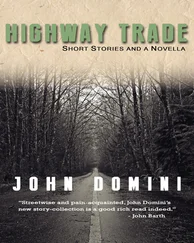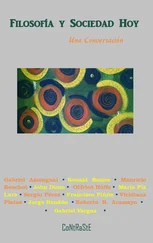“Listen,” he repeated, “that girl took Umberto right upside the head . Like back when Jay was hit.”
Kahlberg wouldn’t hear any objections. John Junior started to shove and get loud, but he wasn’t nearly so loud as the click of the safety on the Lieutenant Major’s pistol.
The family wound up in the museum gift shop. On the way downstairs the galleries threw their footsteps back at them, stony reverberations that widened the time since Barbara had last seen her middle child. Overhead the PA system ordered everyone else out of the building, repeating the command in — was it five languages? Was it ten? Then down in the shop her dealing grew more desperate. She tried to get Kahlberg to stay with them, the “non-essential personnel.” The mother wanted him where she could keep an eye on him. But again she didn’t get what she wanted. The liaison hadn’t taken out his gun just so he could play babysitter, he had the troopers for that. He told the biggest of the powder-blues to stand in the shop door.
“Wait, but, wait.” Barbara put an elbow in the guard’s ribs, reaching past him to hook the strap of Kahlberg’s carryall. “Last I saw, the girl was with you.”
Silky actually bared his teeth. “She went after them before Umberto and Paul got ten steps. I’m surprised you didn’t notice.”
Barbara remembered only bureaucrat and boy.
“Seems to me,” the Lieutenant Major said, “I should’ve taken precautionary measures right then.”
“This is so bogus!” John Junior shouted.
“Listen,” Barb said, “listen, be careful.”
“Hey! If my girl went after Paul, she was trying to protect him!”
“Please, be careful.”
The PR man wriggled free, loping away into the first-floor galleries. He was loping, eager, and the mother was left to seek another arrangement, still less favorable. She backed away from the door, away from her shouting oldest and the other three clustered about him, and ducked between two standing racks of postcards. Perhaps that itself was the bargain Barbara hoped to strike, simply to be left alone among those glossy reproductions of museum pieces — every picture now somehow the same, a slant hieroglyph of blood — so that she could pray. Perhaps prayer had become the only negotiation she had left. Certainly nobody else appeared likely to help. Even the tourists were leaving. Barbara could see them beyond the shop’s glass wall, filing out of the Nazionale one a time, presenting their I.D. to a pair of cops at the door. A backup Silky must’ve called in. Barbara, watching, with her rosary beads dangling from her fist, believed that she herself was trying to do the same: to expose the image of her inmost heart and have it approved.
She never had a doubt about the gunshots. Onetwo-threefourfive, they came, a rushed and untrained cluster.
JJ got loud again: “What was that?” But Barbara was already into her first stride, her rosary looped around her knuckles. She never had a doubt.
In Brooklyn, as she’d grown older and her neighborhood had gotten worse, she’d heard shots once or twice. At night the traffic petered out in a way it didn’t over in Manhattan (and anyway she’d seen less and less of her mother’s family, as she’d grown older), but other noises came on that much more distinctly. The next morning neighbors would claim, / thought it was a truck backfiring , but that didn’t fool the teenage Barbara Cantasola. She’d always known a gunshot at once, and at once her organs of hearing had seemed to relocate to the rabbitty center of her chest. Today, the same. Today in the Nazionale, she understood at first shot and she counted all five, meanwhile bristling with fresh capacity and muscles in new places. The mother calculated where the shots had come from and she had a plan for the soldier at the door. In another moment she hit the trooper just right, using her beaded fist to catch him on his exposed jaw while he was speaking into the walkie-talkie on the other shoulder. She busted past him and shrugged off the children.
A different sort of policeman ran by, a Naples cop, with a revolver in one hand. Barb broke into a run herself, never mind the last-moment swipe by the NATO trooper, so rough that it clawed the bra strap off one shoulder and briefly recalled the pummeling she’d taken from Maria Elena. She knew the trooper couldn’t leave his post. Anyway there was John Junior yelling behind her, and Chris and the girls too, a handful for any soldier. It took a moment to recognize the heat where the man had pawed her, the bruising. And if Paul went down, who would be her healer? Who would be his, who? Not Barbara, certainly — not this mother with her eyes on the stars, or on the Good Samaritan, or on another Hail Mary Full of Crap — with her eyes forever on anything but her own stuttering balsa-wood boy.
Her lungs grew hot too, as she raced alongside racing policemen, three or four uniforms and plainclothes making it clear that she’d been right about where the shots came from. Though she remained a stranger here; the cops believed she was one of them. In their boot-falls she kept hearing a pattern, onetwo-threefourfive.
Then Barb and the others were into some backstage area, a space for deliveries. Her eye was drawn first to the sunlight, the loading dock and its half-open rollaway door. Only after that, within the brightness, did she see the body. Face down, knees up, a man’s body. She’d visited enough Catholic charity homes to know at first sight. This was a full-grown man, no preteen.
The guy’s arms were spread wide across the dock’s concrete floor, stretched out unbent towards the street. With his knees beneath him and his head towards the sulfur-scented glare he looked like a worshipper before an urban sun-god, the Sacred Light in the Alley. Prostrating himself, salaam. Barbara didn’t see his gun, either. He’d been carrying a gun, Kahlberg, him with his Botticelli hair, ruffling now in the traffic winds through the door’s partial opening. She had to look for the thing, the iron handful, and when she found it the pistol looked harmless enough, though it lay well within reach, just beyond one unmoving arm. Its skid across the dock floor had been halted by the spill from his open bag, the loose papers. Also Barbara lost a few shredded seconds frowning over the liaison’s clothes, their uncharacteristic sloppy fit, bunching along the shoulders and around the shoulder strap. The wrinkles poked up, snowdrifts, almost, out of a widening bloodstain. It appeared that all five shots had hit the Lieutenant Major between chest and groin. Barbara detected no movement across the upper body, there where the heart and lungs are, no stirring out of the man at all except for the occasional ruffle of his hair. That hair again, the limit of the mother’s ability to think. Otherwise the kneeling remains, the wrinkled bleeding spill for whom prayer had been the last negotiation, only left her low and sorry and afraid. Her shoulder and breast burned, burned and ached, and Barbara couldn’t come any closer to the man but couldn’t back away either. Some unknown cop had to touch her before she turned and saw Paul.
The boy stood in a corner, in the arms of a policewoman. His narrow shoulders quivering, his head was cradled in the woman’s chest. Again, in a woman’s chest.
The cop knew enough to keep him turned from the corpse. Over the top of the boy’s small head, over the half-combed hair, there ran a blue scarf thickly knotted at the back. A blindfold? Barbara couldn’t handle the question. She couldn’t say how long it took to move his way. At last she got a hand on Paul and realized that his shoulders were shaking because he was crying, only crying, and he had no injury, no further abuse, he was all right — and Mother of God, the sunshine under that delivery door! The racket of cars and trucks beyond!
Читать дальше
